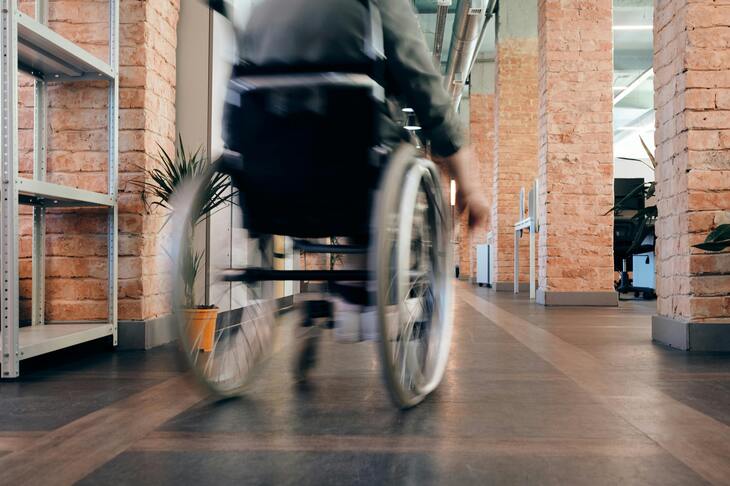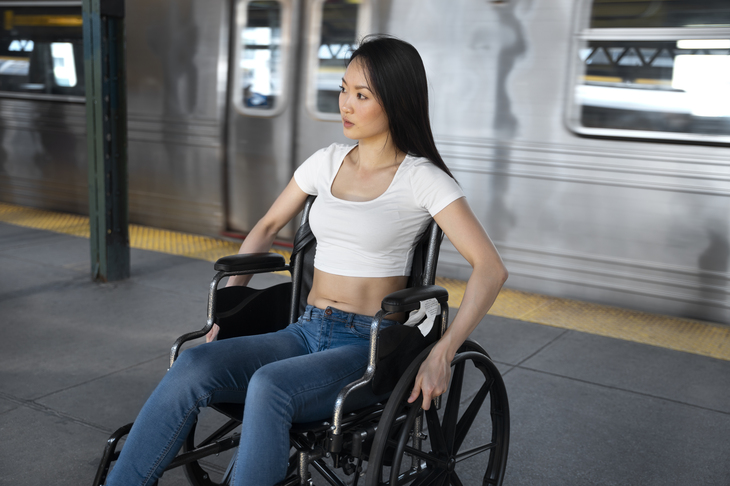Getting a handicap parking permit, also known as a disability parking permit or placard, is essential for people with certain medical conditions or disabilities. This permit grants access to convenient parking spaces closer to building entrances, significantly improving daily accessibility.
In this article, we’ll talk about the top 5 reasons why you should get a handicap parking permit, highlighting key conditions and eligibility criteria. We’ll also explore the benefits of having a permit and how to apply for one.
1. Mobility Impairments
Chronic Conditions and Physical Disabilities
One of the most common reasons to get a handicap parking permit is due to mobility impairments. This category covers several physical disabilities and chronic conditions that make walking long distances challenging or even impossible.
For instance, people with arthritis, multiple sclerosis, or muscular dystrophy often experience severe pain, fatigue, and limited range of motion. For them, having a disability parking permit gives crucial access to parking spaces close to their destinations, making everyday tasks more manageable.
Temporary Injuries and Recovery
Temporary injuries, such as fractures or post-surgical recovery, can also justify the need to get a handicap parking permit. During the recovery process, patients may have limited mobility and must avoid putting unnecessary strain on their bodies.
A temporary permit can offer the needed accommodations to ease a smoother recovery journey, providing closer parking options during this critical time.
2. Cardiovascular and Respiratory Conditions
Heart Disease and Congestive Heart Failure
Cardiovascular conditions, including heart disease and congestive heart failure, are significant reasons to get a handicap parking permit. These conditions can lead to symptoms like shortness of breath, fatigue, and chest pain, particularly during physical exertion.
For people living with these conditions, a disability parking permit ensures they can park closer to their destinations, reducing physical strain and safeguarding their health.
Chronic Obstructive Pulmonary Disease (COPD)
Chronic Obstructive Pulmonary Disease (COPD) is another respiratory condition that often requires a handicap parking permit. COPD, which includes emphysema and chronic bronchitis, makes breathing difficult.
For those affected, conserving energy and minimizing exertion is key. Getting a handicap parking permit helps those with COPD avoid unnecessary walking and provides quick access to their vehicles in emergencies.
3. Neurological Disorders
Parkinson’s Disease and Multiple Sclerosis
Neurological disorders such as Parkinson’s disease and multiple sclerosis can lead to severe mobility challenges. These conditions often cause tremors, muscle weakness, and coordination issues, making safe walking difficult.
For those with neurological disorders, getting a handicap parking permit makes a great difference. It allows them to park closer to entrances, minimizing the risk of falls and injuries and providing vital support for their daily lives.
Seizure Disorders
People with seizure disorders, including epilepsy, may also qualify for a handicap parking permit. While not all seizure disorders result in mobility issues, the unpredictability of seizures can pose significant safety concerns.
Obtaining a disability parking permit allows people with seizure disorders to park closer to their destinations, reducing the risk of experiencing a seizure while navigating busy or unfamiliar areas.

4. Vision Impairments
Legally Blind Persons
Vision impairments, particularly legal blindness, are another valid reason to get a handicap parking permit. Driving through parking lots and streets can be tricky and dangerous for those who are legally blind.
A disability parking permit offers closer access to building entrances, reducing the need to cross busy roads and ensuring a safer experience.
Partial Vision Loss
Even partial vision loss can significantly impact a person’s ability to move around safely. People with conditions such as glaucoma or macular degeneration may struggle with peripheral vision, depth perception, or night blindness.
Getting a handicap parking permit can make their daily routines more manageable by providing convenient access to parking spaces near their destinations.
5. Chronic Pain and Fatigue Syndromes
Fibromyalgia and Chronic Fatigue Syndrome
Chronic pain and fatigue syndromes, like fibromyalgia and chronic fatigue syndrome, can be debilitating. These conditions often lead to widespread pain, extreme fatigue, and difficulty concentrating.
For those living with these syndromes, walking long distances can worsen symptoms and cause significant discomfort. A disabled parking permit can provide much-needed relief by offering closer parking options and helping people with disabilities conserve energy for more essential activities.
Rheumatoid Arthritis
Rheumatoid arthritis is another condition that can cause chronic pain and joint stiffness, making it challenging to walk or stand for long periods. For those with rheumatoid arthritis, getting a handicap parking permit is vital. Likewise, it helps them avoid additional strain on their joints and saves energy for other daily tasks.
Benefits of Having a Handicap Parking Permit
In addition to parking closer to entrances, having a handicap permit offers several benefits. It provides peace of mind by ensuring access to reserved parking spaces designed to accommodate specific needs.
It also saves time and energy, making daily activities more accessible. Moreover, in emergencies, a disabled parking permit can be a lifesaver, offering quick access to medical facilities and emergency services.
How to Apply for a Handicap Parking Permit
Applying for a handicap permit normally involves a simple process. First, consult your healthcare provider to determine if you qualify based on your medical condition. Your provider will complete a medical certification form, which you will then submit to your local Department of Motor Vehicles (DMV) or relevant authority.
Some regions may require a small fee for processing the application. Once approved, you will receive your disability parking placard or license plate, which you must display when using designated parking spaces.
Why You Should Get a Handicap Parking Permit
In conclusion, a handicap parking permit is invaluable for people with various medical conditions and disabilities. Indeed, it can reduce stress and make everyday tasks more easy to bear.
If you have a mobility impairment, cardiovascular or respiratory condition, neurological disorder, vision impairment, or chronic pain and fatigue syndrome, a disability parking permit can give you solutions to make your daily life more manageable.
Whether you need help with a Florida handicap parking permit application, or perhaps have questions about Ohio disabled parking permit requirements, we can give you the assistance you need.
Featured image by Nothing Ahead on Pexels



